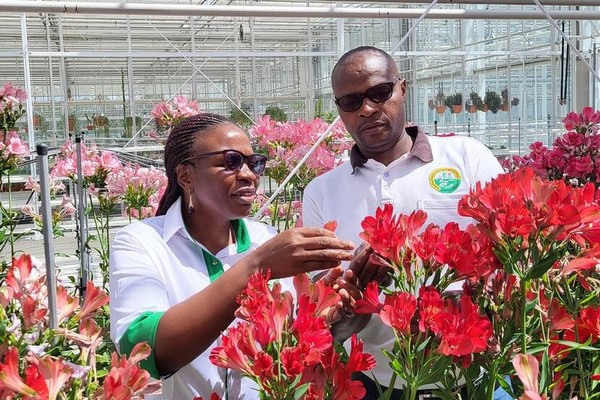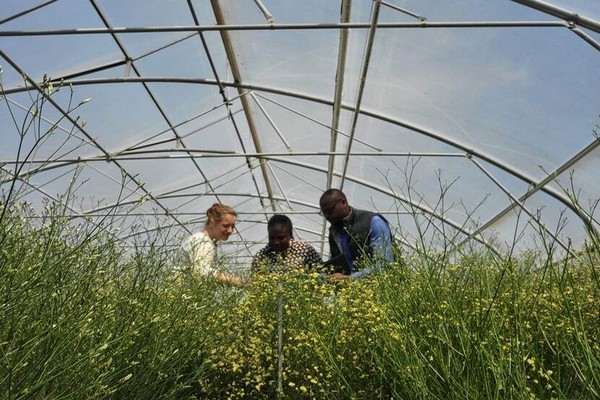Kenya's floriculture market is a critical segment of its agricultural sector, valued at USD 861.6 million in 2018 and projected to grow annually by 4.7% between 2020 and 2025. In 2020, the country produced 142,477.8 metric tons of fresh flowers, generating an impressive USD 1.09 billion. This vibrant industry not only boosts Kenya's economy but also provides direct employment to over 150,000 people and indirectly supports more than 500,000 through related goods and services. To sustain this growth, a robust plant variety protection system is essential.

From June 17th to June 28th, Mrs. Gentrix Nasimiyu Juma, Chief Plant Examiner at the Kenya Plant Health Inspectorate Service (KEPHIS), and Mr. Lucas Suva, Principal Inspector at the Plant Variety Protection Office, KEPHIS, visited the Dutch Inspection Service for Horticultural crops, Naktuinbouw.
The primary aim of this visit was to enhance the capabilities of Kenyan plant examiners in Distinctness, Uniformity, and Stability (DUS) testing according to the UPOV system. By improving these skills, the program sought to facilitate the faster granting of plant breeders' rights, encourage breeders to invest in Kenya, and enable growers to access elite flower varieties. This would lead to increased productivity, stimulate breeding industry development, and create more job opportunities, ultimately fostering more innovation and economic growth in Kenya's floriculture sector.

This two-week training focused on Distinctness, Uniformity, and Stability (DUS) testing and reference collection management for ornamental plants. The program provided by the DUS ornamental Team at Naktuinbouw, included lectures, practical sessions, and field visits. The training covered various ornamental crops, including Rosa L., Alstroemeria L., Chrysanthemum L., Dianthus caryophyllus L., Solidago, Gypsophila paniculata, Limonium sinuatum, and Zantedeschia.
By participating in this training, the Kenyan plant examiners significantly enhanced their skills, contributing to the development and improvement of Kenya's plant breeder's rights system. This, in turn, stimulated the floriculture industry, fostering innovation and economic growth.
Source: agroberichtenbuitenland.nl
